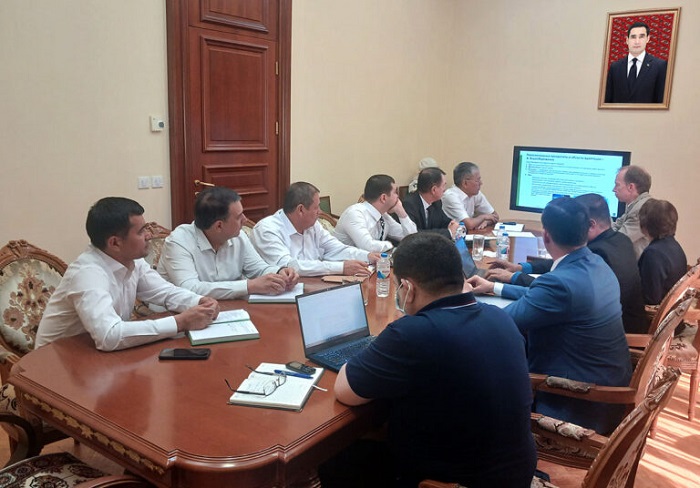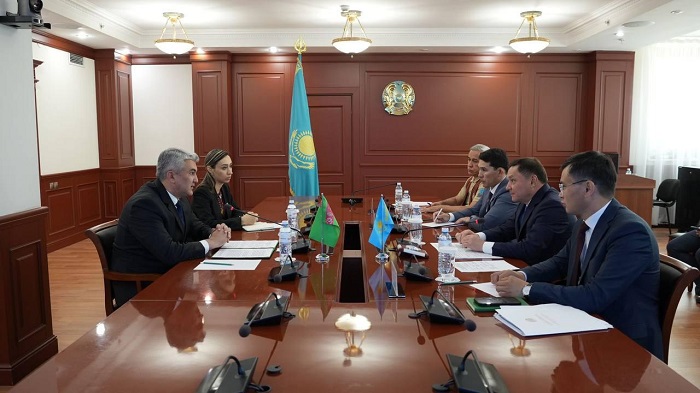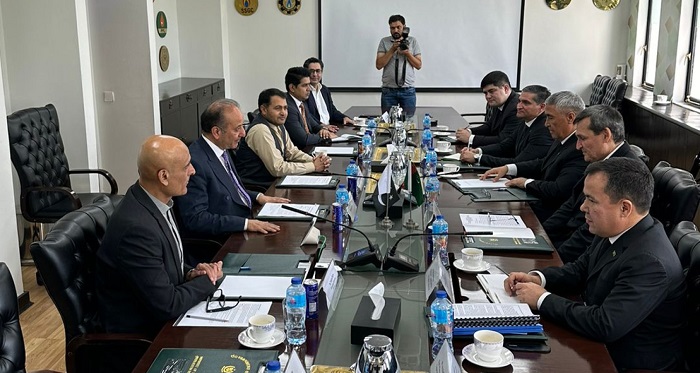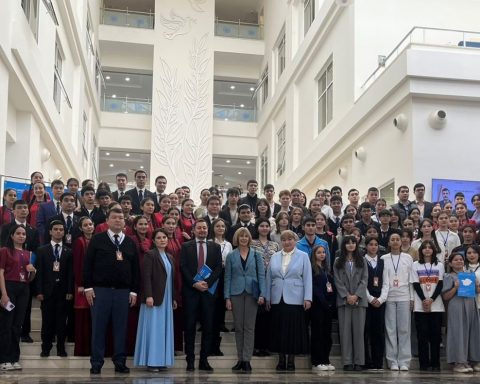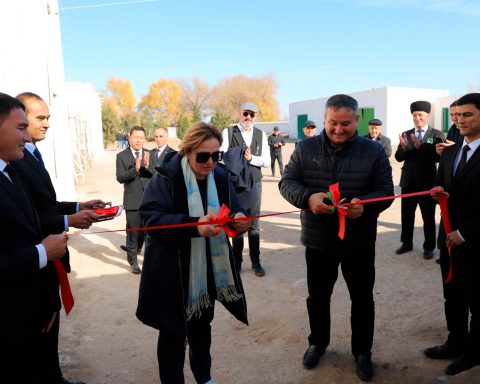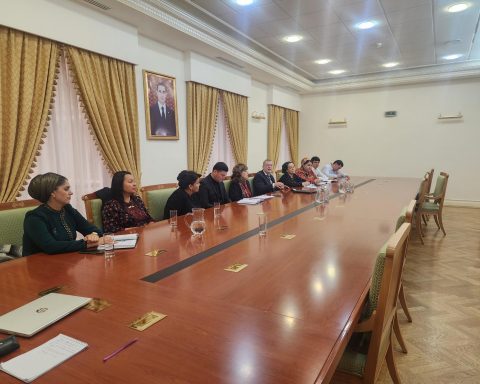Early July, an Asian Development Bank (ADB) delegation and FutureWater visited Ashgabat for meetings and consultations with specialists from Turkmenistan’s Ministries of Agriculture and Environmental Protection, as well as the State Committee of Water Resources. The goal was to establish scientific and practical cooperation for a new climate adaptation-focused project.
The proposed project focuses on greening agricultural production and environmental management. It will include:
• Strengthening institutional and legislative processes
• Measures to adapt to climate change
• Mitigation strategies (reducing greenhouse gas emissions)
• Digitalization in the water sector
• Promotion of space technologies
FutureWater is mapping climate-related hazards and climate vulnerability factors, in order to select focus areas and priority actions.
Following consultations, a consolidated meeting defined the project’s preliminary content. This incorporates presentations by ADB representatives and proposals from Turkmen government officials regarding natural resource protection and use. The project structure will involve three parts: monitoring and modelling; implementation of activities; knowledge capacity building in modern practices.
ADB climate specialist Leo Kris Palao and consultant Johannes Hunink emphasized the importance of a practical and specific approach to maximize the partnership’s effectiveness. Turkmen representatives highlighted the ADB’s history of supporting domestic environmental management practices. They noted previous successful joint projects in nature conservation, food production, and agriculture.
Climate Change Adaptation Scoping Assessment for Turkmenistan
The project aims to facilitate the identification and conceptualization of projects focused on climate adaptation, particularly enhancing resilience in Turkmenistan’s water and agriculture sectors. This involves creating maps of climate-related hazards to engage with government and development partners. The mapped climate risks will serve as a foundation for discussions on potential interventions, collaboration, and investment entry points to support climate change adaptation efforts in the country.
FutureWater will develop a high-level climate change and adaptation assessment for Turkmenistan to strengthen the water and agriculture sector’s resilience against climate change. The work involves a detailed hazard mapping exercise, employing observational and satellite-based information, to identify climate-related risks such as droughts, water scarcity, heat, salinity, erosion, and floods. These mapped hazards will be synthesized at the administrative level, presenting a comprehensive visual representation through figures and tables.
Key exposure and vulnerability datasets will be mapped, and pertinent sources for subsequent collection and analysis will be identified, setting the stage for a detailed risk assessment beyond the scope of work. The key output of this effort is the assembly of an inventory of climate adaptation measures gleaned from existing reports and official documents, contextualized to Turkmenistan’s unique circumstances, and an initial gap and opportunity assessment based on this inventory.
Based on the assessment, the adaptation options will be categorized and an initial prioritization will take place based on each option’s potential to mitigate risks across various hazards, its capacity for impactful outcomes beyond local scales, and a relative indication of expected cost-effectiveness. The outcome should provide a foundation for an integrated climate adaptation project. Concurrently, FutureWater will engage in country consultations, collaborating with stakeholders to confirm or refine identified adaptation options. These consultations will also explore potential synergies with ongoing and planned projects initiated by both the government and development partners.
About FutureWater
FutureWater, based in Netherlands and Spain, is a global research and consulting organization dedicated to combining scientific research with practical solutions for water management. The organization’s work spans across global, national, and local levels, partnering on projects that address crucial issues such as water for food, irrigation, water excess and shortage, climate change impacts, and comprehensive river basin management.
At the heart of FutureWater lies key expertise in quantitative methods. They specialize in advanced simulation models, geographic information systems, and satellite observations, providing insights into complex water management challenges. The organization’s diverse range of clients and collaborators includes the World Bank, Asian Development Bank (ADB), various national and local governments, river basin organizations, science foundations, universities, and research organizations.

